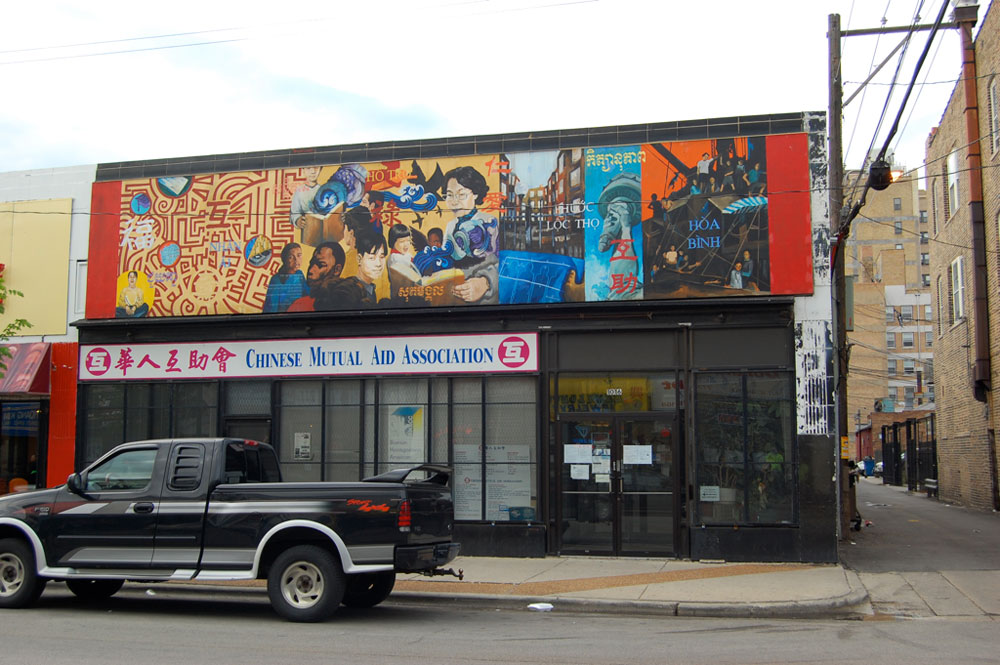
October 26, 2020; Eater Chicago and CalMatters [Desert Sun]
On a small one-acre vegetable farm in Jurupa Valley—a small town near Riverside, California—Aram Ayra and other volunteers come on Thursdays to pull weeds, rearrange irrigation hoses, and harvest the farm’s crops: corn, squash, cabbage, lettuce, basil, and more. In return, the farm’s owner agrees to give the volunteer team a part of the week’s harvest to distribute to those in need. So explains Orlando Mayorquin, reporting for CalMatters.
Ayra is the founder of the Riverside Mutual Aid Network. As Mayorquin writes, the Riverside group is part of a national network that has sprung up to offer “food and other forms of relief as the coronavirus pandemic sent the economy into a nosedive” and now is once again being tested.
NPQ has covered mutual aid before. As Ed Whitfield, Sohnie Black, Alexandria Jonas, and Marnie Thompson detailed in May, mutual aid is “based on the idea that everyone has needs that should be met and that everyone has something to offer to help meet others’ needs, activates everyone as part of the solution, and thus has potential to get to the scale we need.” In some cities, the uprising against racism gave a huge boost to mutual aid networks. For instance, in Minneapolis, the South Minneapolis Mutual Aid Autonomous Zone Coordination network alone grew after the murder of George Floyd from a few hundred members to an estimated 19,700.
As Ayra tells Mayorquin for CalMatters, the whole point of mutual aid is to “put agency and self-sufficiency back in the hands of the communities and allow them to essentially determine how resources should be allocated.”
Sign up for our free newsletters
Subscribe to NPQ's newsletters to have our top stories delivered directly to your inbox.
By signing up, you agree to our privacy policy and terms of use, and to receive messages from NPQ and our partners.
For a time, federal support, such as the CARES Act’s checks to families and $600 weekly supplemental unemployment insurance payments, helped many through the crisis. But now this support has disappeared. As a result, Mayorquin notes, “Without another economic relief package…and insufficient unemployment benefits for workers and eviction protections for renters, organizers say the need for mutual aid won’t subside any time soon as the pandemic rages with no clear end in sight.”
This statement is confirmed by Naomi Waxman and Ashok Selvam of Eater Chicago, who highlight similar work being conducted on the ground in their home city of Chicago. Chicago, they note, “is now in its second wave of COVID-19 infections, and as the temperatures dip, residents hit hardest by the pandemic are going to need community assistance.” The need, they add, is “not going away.” On their list of a “few neighborhood groups” that are providing mutual aid in Chicago, they actually list more than 30 efforts, a few of which are profiled below.
The 33rd & 35th Wards Mutual Aid group, for example, includes a detailed online web form for requests and volunteer offers that connects residents in the Albany Park, Irving Park, Ravenswood Manor, Avondale, Logan Square, and Hermosa neighborhoods. Garfield Park Mutual Aid also has a form where residents can offer skills, resources, supplies, space, and time to community members who are in need, with recipients of aid encouraged to give back when and where they can. Hermosa Mutual Aid, which focuses on supporting the neighborhood’s heavily (about 90 percent) Latinx community, provides another example of this kind of platform.
As Mayorquin underscores, “Mutual aid works by asking members to organize and pool resources to meet a community’s most basic needs.” For organizers and volunteers, this work, he adds, offers at least a measure of an “antidote to government’s inadequate response, as the pandemic accelerates income inequality and casts countless working households over the brink.”—Steve Dubb
To learn more, join mutual aid network participants from Chicago, Minneapolis-St. Paul, and Atlanta in a free NPQ webinar on Wed., Oct. 28th at 3 pm EDT. Register here.










